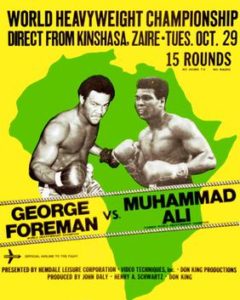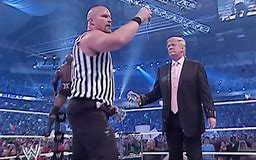Concern about Chinese influence operations in Western democracies has increased over the last few years, including here in NZ. The concern stems from the fact that, although not espionage or intelligence gathering per se, such operations–which involve money spent on individuals and organisations, establishment of pro-China fronts and media outlets, and placement of individuals linked to or controlled by the Chinese Communist Party in positions of corporate and political importance–corrupt Western democratic systems and undermine the political, social and economic values that underpin them.
The impact of Chinese influence operations has been the subject of considerable discussion in Australia, to the point that politicians have been forced to resign because of undisclosed ties to Chinese interests and intelligence agencies have advised against doing business with certain Chinese-backed agencies. As usual, the NZ political class and corporate media were slow to react to pointed warnings that similar activities were happening here (people may remember my essay on a Chinese fifth column from a few years ago). It was not until Canterbury University academic Anne Marie Brady published an essay last year on so-called Chinese “magic weapons” that the extent of Chinese influence in the local political and corporate worlds was revealed and became a matter of public interest.
It is significant that Brady’s work was first published in the US for a think tank focused on Chinese international affairs, and her first public exposure happened in Australia at a parliamentary committee hearing. That is because, unlike the US and Australia, NZ politicians are not particularly interested in digging into the nature and extent of Chinese influence on the party system and government policy. This, in spite of the “outing” of a former Chinese military intelligence instructor and academic as a National MP and the presence of well-heeled Chinese amongst the donor ranks of both National and Labour, the close association of operatives from both parties with Chinese interests, and the placement of well-known and influential NZers such as Don Brash and Jenny Shipley in comfortable sinecures on Chinese linked boards, trusts and companies.
As I have written before, there is enough to this pattern of behaviour to warrant scrutiny from NZ intelligence agencies and the police. But we also need to put Chinese influence operations in perspective. How are the Chinese any different than the Indians or Polynesian groups when it comes to infiltrating political parties, other than the amount of money available to them? How are these influence operations substantially different than those of other governments such as the US, which funds an array of scholarships, visitor programs, parliamentary delegation junkets and the like? How are Chinese backing of friendship and solidarity groups different than those backed by other foreign governments? How is Chinese corporate fund raising, “fact-finding” and conference travel and other ear-bending efforts any different than the lobbying of corporations, business associations, advocacy groups, etc.?
The answer seems to be that the Chinese are authoritarian, have lots of money to spend on making friends and influencing people and do so in a clearly transactional fashion, much as they do via their chequebook policy in the South Pacific. The implication is that they engage in corrupt practices when necessary and will not adhere to the strictures of democratic governance other than as lip service when it comes to pursuing their interests. Since NZ is, in essence, just another Pacific Island nation, why should this come as a surprise? In fact, the more interesting issue is why, fully knowing that the Chinese are using influence operations for purposes of State that go beyond international friendship or business ties, do so many prominent New Zealanders accept their money and/or positions on front organisations? Is the problem not so much what the Chinese do as as a rising great power trying to enlarge its sphere of influence as it is the willingness of so-called honourable Kiwis to prostitute themselves for the Chinese cause?
Last week the beat up on Chinese influence in NZ took a strange twist. At a US-China Economic and Security Review Commission (USCESRC) hearing, an ex-CIA analyst said that the Chinese had penetrated the “political core” of the country and that in light of that the US should reconsider keeping NZ in the Five Eyes signals intelligence sharing network.
The absurdity of these remarks needs to be deconstructed, not only for what was said but for what was not said. Let it also be noted that although nominally a bipartisan agency of the US Congress, the USCESRC has increasingly become a China-bashing forum, something that has been accentuated under the leadership of Senate Majority Leader Mitch McConnell (who oversees Commission appointments) and President Trump. This also matters because the witnesses called to testify before USCESRC are often cherry picked for their views on matters of US-China relations.
In his case the ex-CIA analyst rightly pointed out that, in contrast to the US and Australia, the NZ political elite were blasé about the extent of Chinese influence in local politics. But he took a step too far, downplaying the record of the previous National government and criticising the new Labour government for casting a blind eye on pernicious Chinese influence within its ranks (the only mention of National was a reference to the Jian Yang case). He then jumped the shark by recommending that the US and other 5 Eyes partners reconsider NZ’s membership in the signals intelligence sharing partnership.
Let’s be very clear: for the previous nine years National was in power, the deepening of Chinese influence was abided, if not encouraged by a Key government obsessed with trade ties and filling the coffers of its agrarian export voting base. It was National that ignored the early warnings of Chinese machinations in the political system and corporate networks, and it was Chinese money that flowed most copiously to National and its candidates. It is not an exaggeration to say that Chinese interests prefer National over Labour and have and continue to reward National for its obsequiousness when it comes to promoting policies friendly to Chinese economic interests. In fact, it is National that had a Minister, in the person of Judith Collins, attempt to use her position and manipulate the NZ ambassador to China into pushing her husband’s dodgy Chinese-backed business.
All political parties protest that they strictly adhere to campaign finance law and on paper they clearly do. But the whiff of dark money, dirty politics and other forms of unacknowledged influence trading has long clung to National in a measure not shared with its opponents. Put succinctly, contrary to what the the ex CIA analyst intimated, the influence of Chinese interests has been strongest when National is in government. And it is not just the Chinese who have availed themselves of the favourable climate operative during National’s tenure.
Not that National is solely to blame when it comes to trading favours. Labour clearly has consorted with some unsavoury Chinese donors and it remains to be seen if it will be any different than National now that it is out of the wilderness and back into government. But if foreign penetration of the “political core” is such a concern, it is surprising that no serious mention has made either at home or abroad of Winston Peters’ ties to Russia via the horse industry and beyond. In fact, when one looks at Peters’s links to an assortment of industries and interests, it is not just foreigners who appear to have an inside track on his thinking. Even so, the notion of a “political core” being compromised assumes that a whole array of constituent groups, from unions to manufacturers to iwi, are in the pockets of the Chinese no matter who is in government. Perhaps they are, but if so, I have not heard about it.
Labour may have the likes of Raymond Ho in its ranks and some dubious Chinese businessmen among its supporters, but it comes nowhere close to National when it comes to sucking up to the Chinese. That is why Jian Yang is still an MP, and that is why we will never hear a peep from the Tories about the dark side of Chinese influence operations. For its part, Labour would be well-advised to see the writing on the wall now that the issue of Chinese “soft” subversion has become a focal point for Western democracies. After all, Chinese influence operations that work to subvert basic value structures do so against a backdrop of aggressive Chinese cyber attacks and intelligence gathering in the countries in which influence operations are most prominent, NZ included.
But that is also why the recommendation that NZ be excluded from 5 Eyes is ridiculous. First, because for all of the talk about counter-terrorism, the bulk of counter-intelligence efforts by NZ (through the SIS and GCSB) and its 5 Eyes partners are directed at state actors, China in particular. Even if the NZ political elite were totally compromised by the Chinese, the security bureaucracies would insulate their operations from political interference and would likely work with the Police to demonstrate when and where politicians were acting on behalf of Chinese rather than NZ interests. It is the NZ intelligence community (NZIC), more than anyone else, who know the full extent of Chinese activities in the country, and the NZ intelligence community is fully ensconced in Anglo-centric democratic intelligence networks. It is therefore not likely that the NZIC would overlook the type of Chinese influence operations that result in capture of NZ’s “political core.”
Secondly, getting thrown out of 5 Eyes is not simply a matter of being told to take one’s toys and go home. The equipment at the listening posts at Waihopai and Tangimoana and at GCSB headquarters in Wellington is acutely sensitive and there are numerous citizens of partner countries working at those installations. Dismantling and removing equipment, files, archives and other sensitive material from such facilities will be time consuming, diplomatically fraught and operationally vulnerable, especially when it is well known that the Chinese, foremost amongst others, are extremely interested in them. Â Institutional history, to include linkages with 5 Eyes partners and broader security networks, would have to be purged in order to avoid it falling into adversary hands. So getting kicked out of 5 Eyes involves much more than a rebuke, and, given NZ’s taskings within the 5 Eyes network, it is precisely the Chinese who will benefit the most from the expulsion.
If the US and other 5 Eyes partners are as worried about NZ being compromised by the Chinese as the ex-CIA analyst suggests that they are, a message of concern would have been sent to the NZ government in at least three ways: via diplomatic communications from the US embassy (which undoubtably has sent reports back to the State Department about the prevalence and impact of Chinese influence operations and intelligence gathering in NZ); by a diminishing of intelligence feeds from those partners in an obvious fashion; and by direct communication between the intelligence chiefs involved. This could well have been the purpose of the visit by the US Director of Intelligence to NZ a few weeks ago and if so, the gravity of the concerns have now been made clear to the Ardern government. However, the PM as well as the Opposition leader have both said that nothing has been brought to their attention that causes them to believe that NZ’s political system has been compromised by Chinese agents.
Given my antipathy towards authoritarians, I hold no particular affection for the PRC. But I do recognise that it does so as a maturing great power and accept that its behaviour is not going to change any time soon unless action is taken to circumscribe its activities in the West–a problem for societies founded on notions of freedom of association, movement and speech (including of opinion and the press). Because these rights are seen as Achilles Heels to be exploited by authoritarian rivals such as China and Russia, it should be expected that they will continue to be used as avenues of exploitation by them (as has been well demonstrated in the US).
What I deplore the most, though, is attacks on left-leaning governments (such as they are) like the current Labour government in NZ for supposedly going soft on Chinese influence pandering when in fact it has been right-leaning governments, not only in NZ but elsewhere, that have most assiduously courted Chinese investment and better diplomatic ties in spite of the PRC’s authoritarian character and dubious record when it comes to human rights and adherence to international conventions. For the NZ media to pick up and bang this hammer when it is part of an orchestrated attack on the Chinese by the US doing so for geopolitical reasons of its own demonstrates how shallow and uncritical reporting has become in Aotearoa. The issue is serious, which is precisely why it should not be subject to partisan manipulation or, ironically, pressure from allied states.
So yes, NZ has a problem with Chinese influence operations on its soil, particularly the willingness of NZers to serve Chinese interests for a handful of coin. But no, it is not just the fault of Labour and no, it is not as bad as has been alleged by the ex-CIA analyst. Nor is what the Chinese do in terms of influence mongering that dissimilar to what many other entities do when pushing their message in the NZ political system.  So let us take better notice of the phenomenon and address it for what it is without succumbing to the apocalyptic diatribes of people whose concern about Chinese influence operations has  less to do with the particularities of NZ and more to do with the broader strategic competition that sees China on the rise and the US in decline.
BONUS LISTEN: Here is an interview done on RNZ by the ex CIA analyst in question. Readers can form their own opinions as to whether he sounds like an authoritative and credible source for the claims he has made:Â https://www.radionz.co.nz/national/programmes/morningreport/audio/2018646774/ex-cia-analyst-admits-trump-irony-in-china-influence-warning




